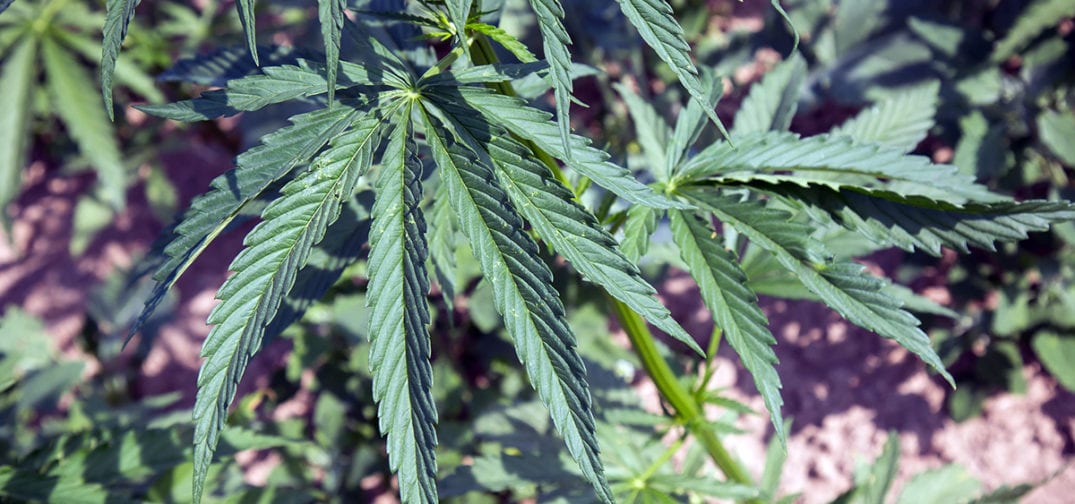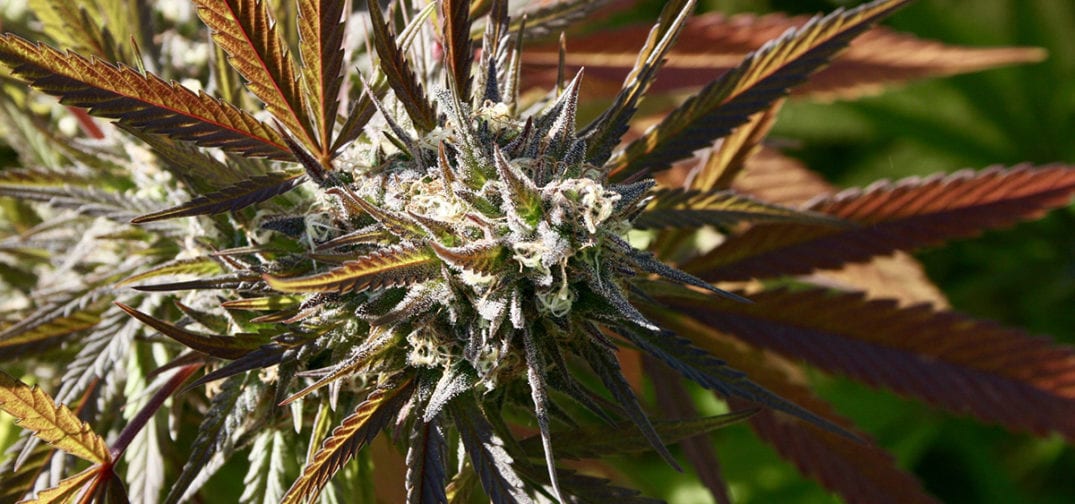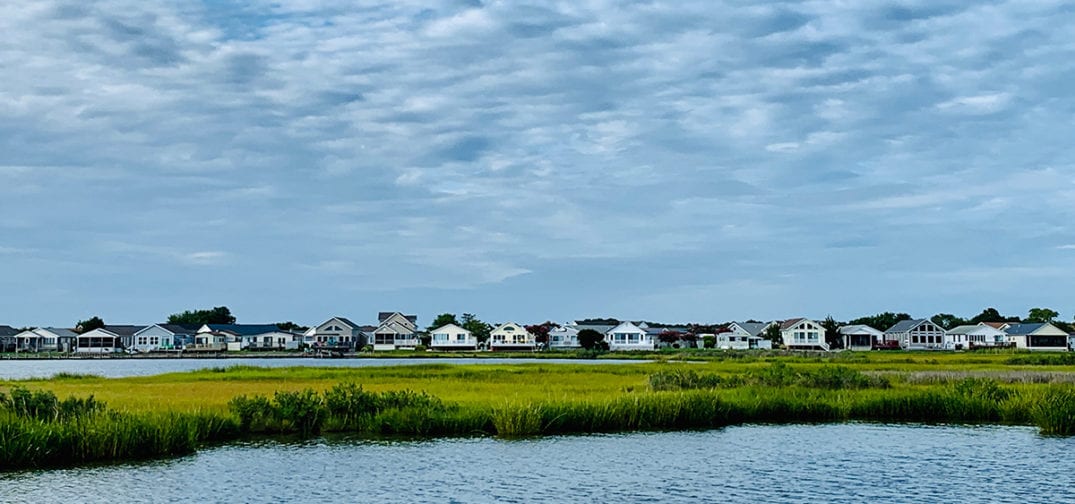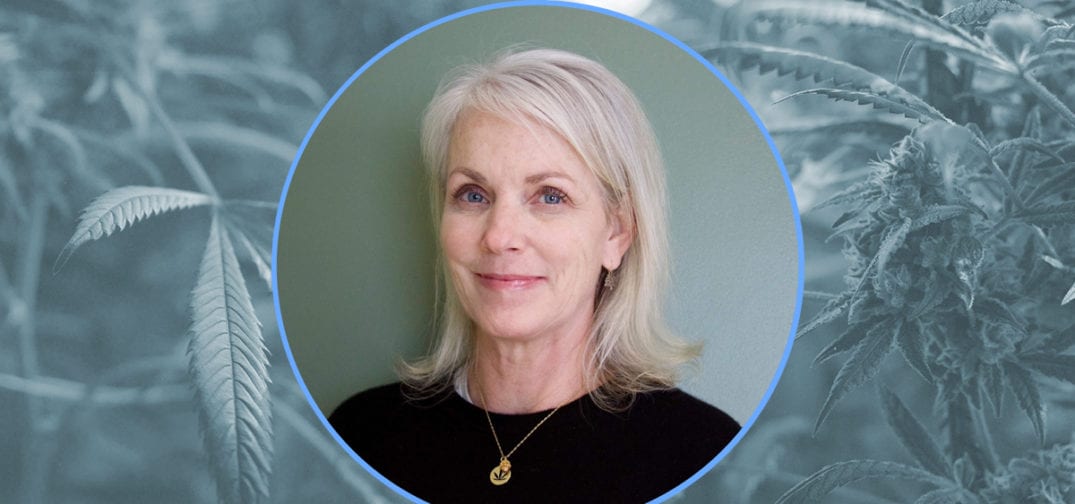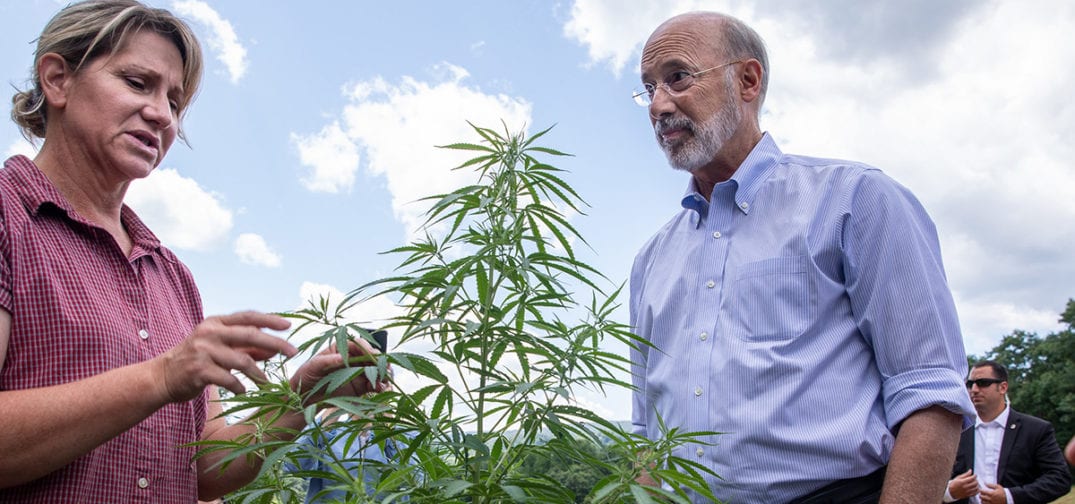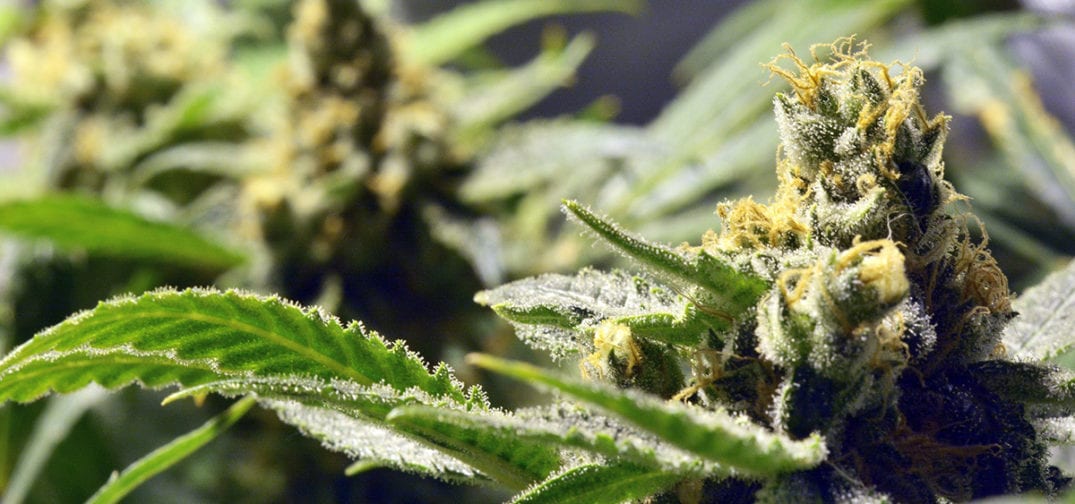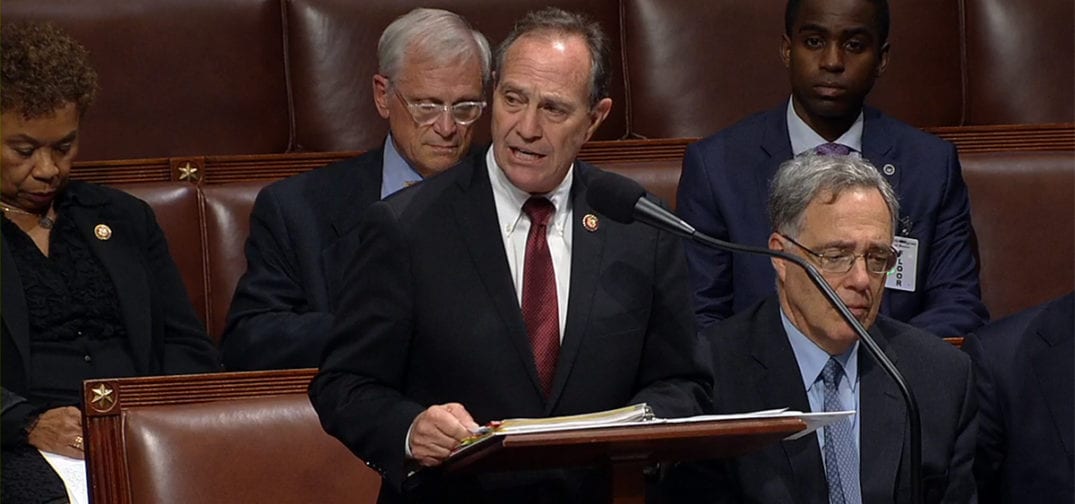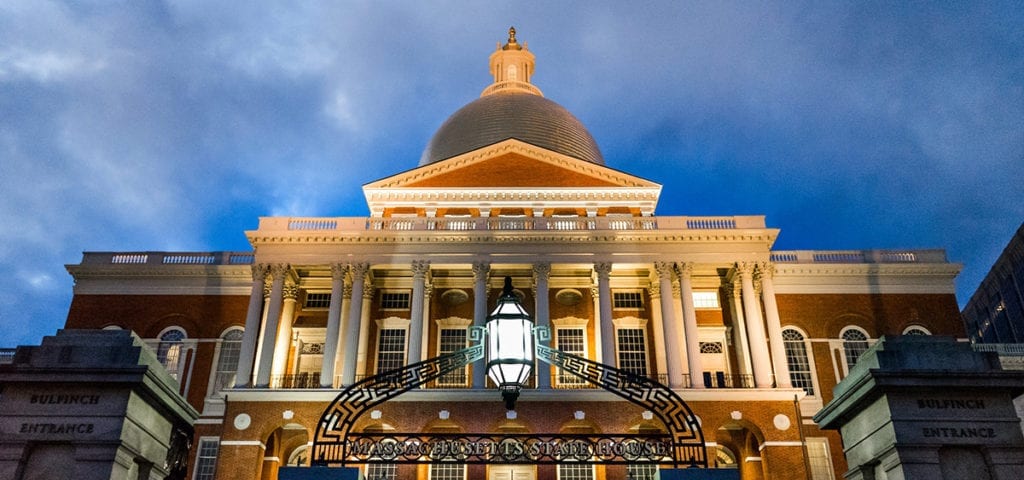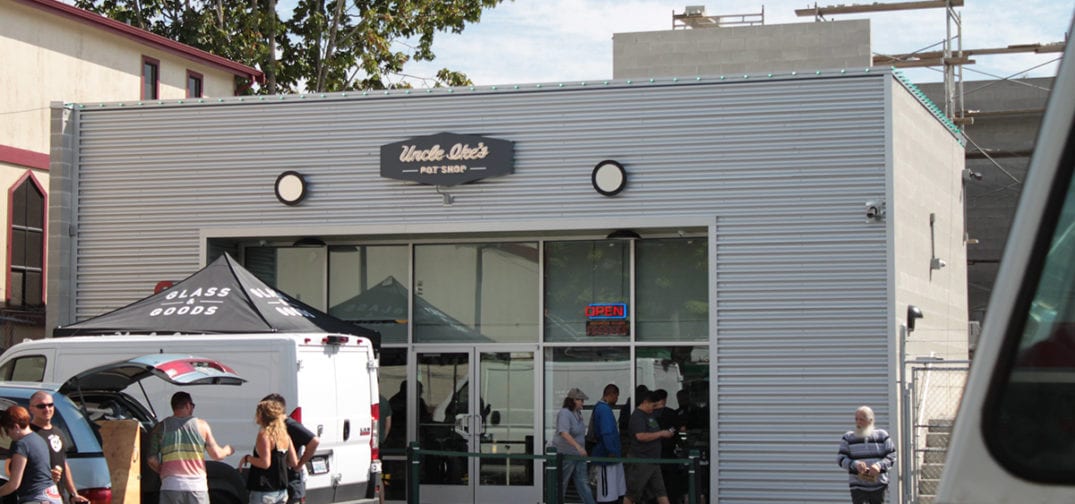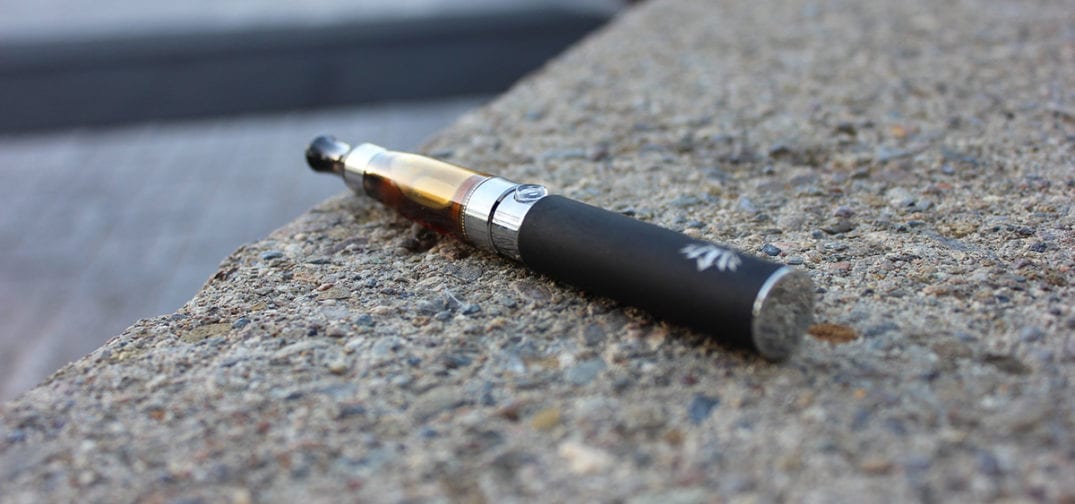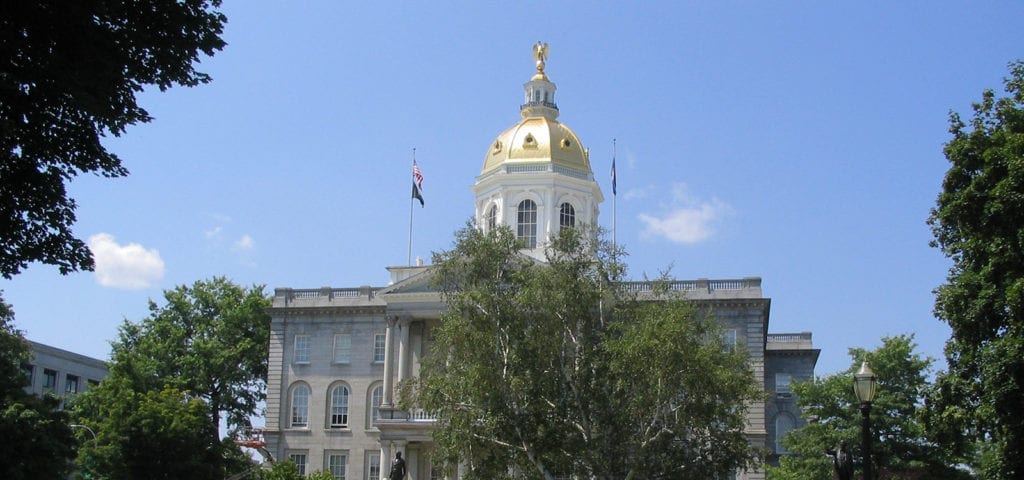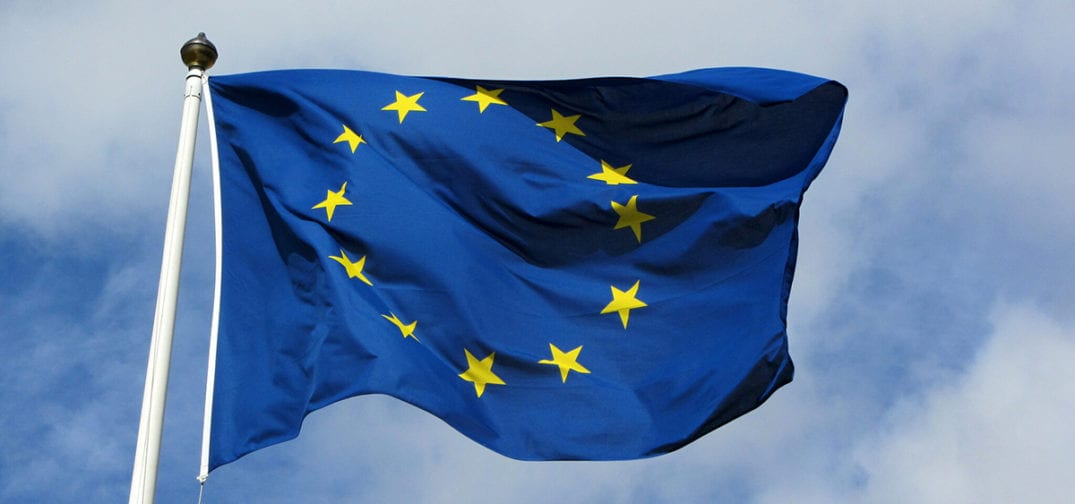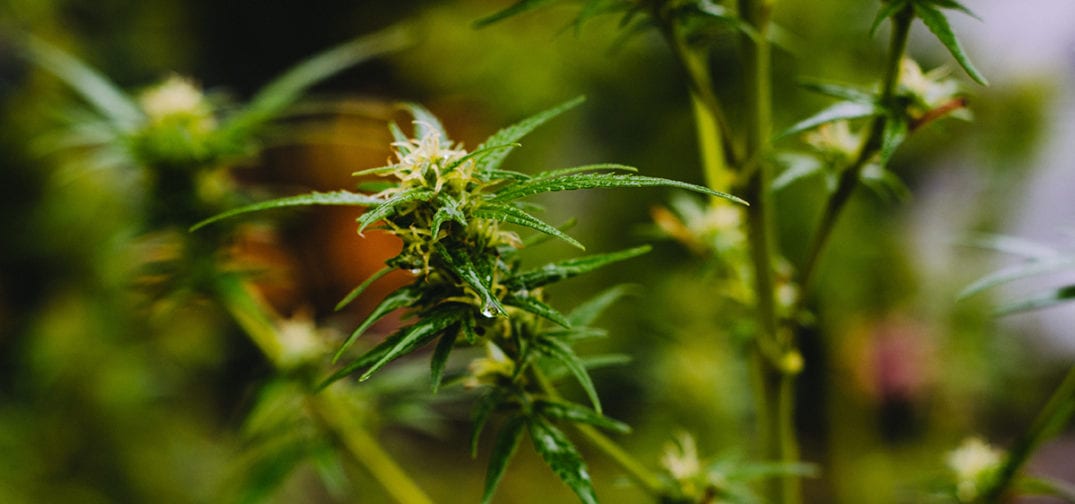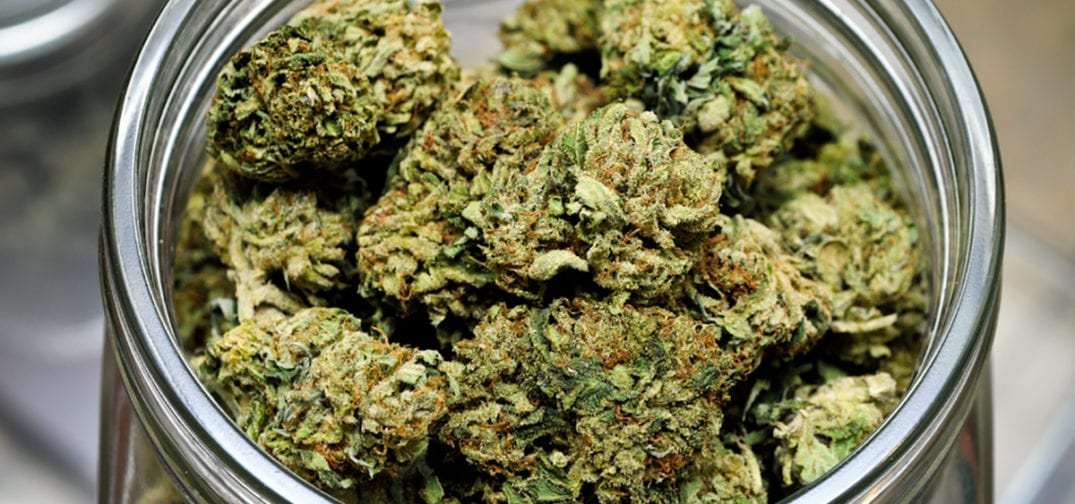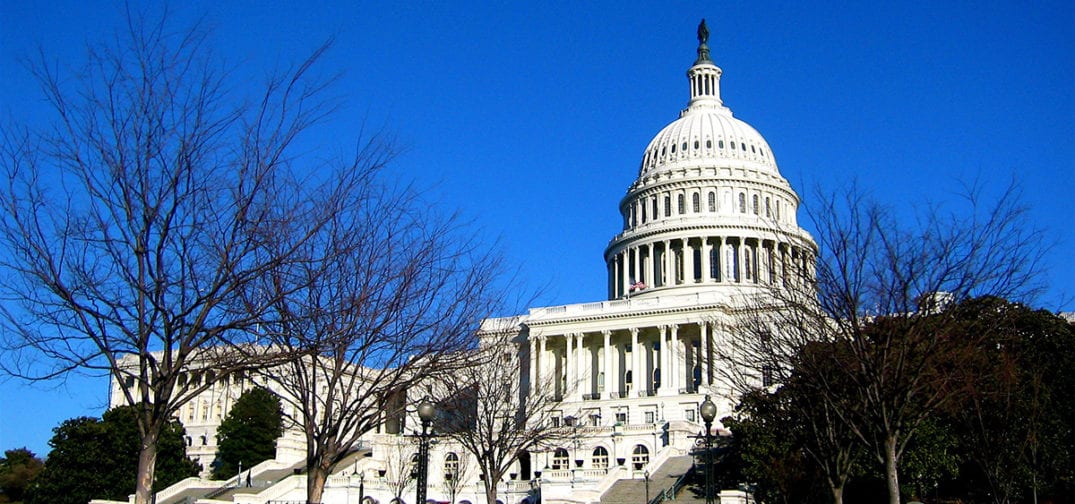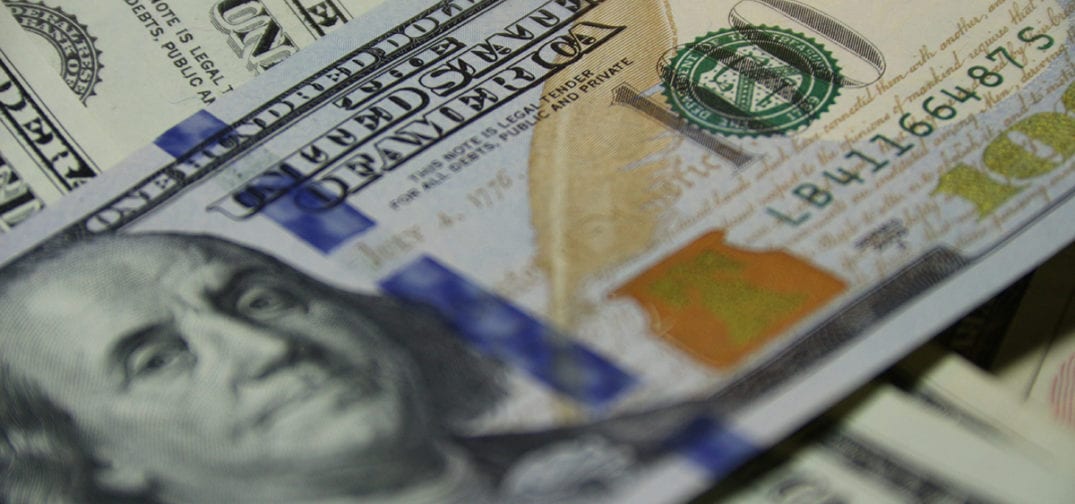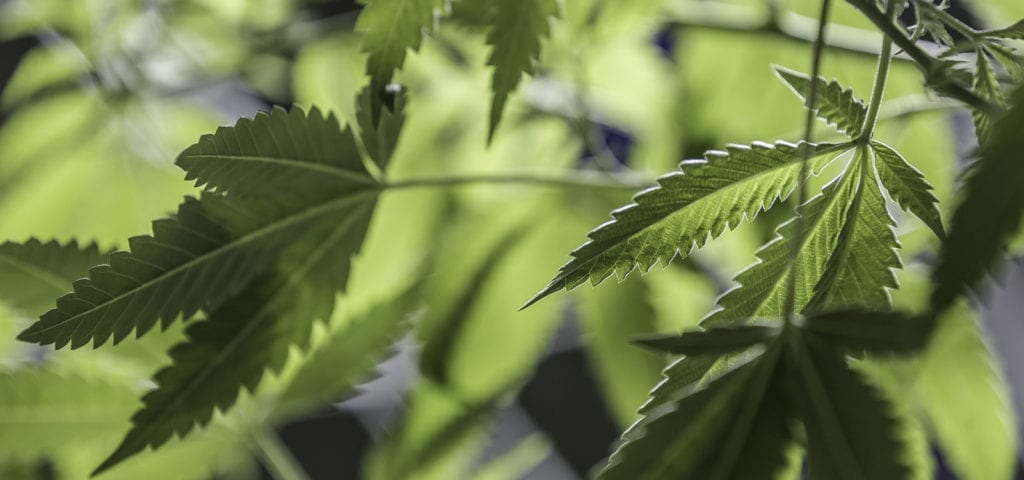Meg recently joined our podcast host TG Branfalt for an interview about cannabis dispensary management and the budding Massachusetts market. Their conversation stretches back all the way to the early days in Colorado, when Meg worked alongside lawmakers and the governor to find smart regulations for the industry and founded MiNDFUL, one of the state’s early dispensaries, to the eventual founding of Canna Provision Group, a boutique adult-use dispensary in Lee, Massachusetts.
Tune in to the interview below for advice on assembling a powerhouse cannabis management team, how to treat your patients and customers, and a whole lot more! You can also scroll further down to read a full transcript of this week’s Ganjapreneur.com podcast episode.
Listen to the podcast:
Read the transcript:
Commercial: This episode of The Ganjapreneur Podcast is made possible by 420-friendly service providers in the Ganjapreneur business directory. If you need professional help with your business, from accounting to legal services, to consulting, marketing, payment processing or insurance, visit ganjapreneur.com/businesses to find service providers who specialize in helping cannabis entrepreneurs like you.
Visit the Ganjapreneur business directory today at ganjapreneur.com/businesses.
TG Branfalt: Hey there. I’m your host, TG Branfalt, and thank you for listening to the Ganjapreneur.com podcast, where we try to bring you actionable information, and normalize cannabis through the stories of ganjapreneurs, activists, and industry stakeholders.
Today, I am joined by Meg Sanders. She is said CEO of Canna Provisions, who opened Colorado medical dispensary, MiNDFUL, in 2010. In Colorado, she worked with the governor-appointed committee to develop retail regulations. Meg is also the co-founder for consultancy firm, Will & Way, which advises start-ups, government agencies, investors, and institutions. How you doing this morning, Meg?
Meg Sanders: I’m doing great. Thank you so much. How are you doing?
TG Branfalt: I’m doing just fine. Real excited to talk about Massachusetts. I live in New York. It’s a border state, and there’s a lot to talk about, and I think that it’s been kind of overlooked since it rolled out, but before we get into the details of Massachusetts, I want to talk about you and your background. How did you end up in the cannabis space?
Meg Sanders: Well, it’s an interesting journey, as I often hear from fellow cannabis industry people that I work with. Colorado started kind of a Wild West approach to the cannabis business in 2009, 2010, and basically it was all based on the Cole Memo that came out, that basically said if you’re a state legislated program, or a state program that participates in some type of registration process, that you weren’t going to be a target for the federal government, and people took that and went, “That’s us.” Because it’s in our Constitution, from the year 2000, and from there on, it just went crazy, and every warehouse you can imagine that probably been sitting empty for a couple of years, to every store front that a landlord would lease to, dispensaries and grows were popping up everywhere.
In that timeframe, I had reached a bit of a glass ceiling in my role as compliance director for a small trading firm, and it was clear that I wasn’t going to go any further in that. I wasn’t super passionate about it either. This opportunity came through a college friend, and so I kind of spoke with him on and off for several months before deciding to take the plunge, and really just jumped in with both feet, so to speak. It was challenging, and frightening, and at the same time, really exciting to be doing something like this, where you really understand that we’re never going to see something like this again in our lifetime. So, being able to participate in the industry at the very early stages, was a very intriguing proposition, and that’s how I got started.
TG Branfalt: What were some of those considerations that you were sort of making with yourself as you were weighing entering the space, going from something, quite a traditional industry to something sort of outsider sort of kind of culture?
Meg Sanders: Well, I mean there was a lot of things we had to consider. First of all, we were cultivating well over the federal maximum of 99 plants, so that right there was mandatory sentencing, so that was something we had to be concerned about. When you are operating under the trust, I guess, of the State of Colorado, that they actually had a good handle on how to regulate this, or ideas on how to move forward in regulations to keep the businesses safe, and I think the other part of it was just the social side, the social stigma. My kids were young. I was a volunteer in their school. I had started a youth football program in my town of Boulder, Colorado, and there was a lot to consider, to make sure that I didn’t do any damage to the entities that I was working with, and also being able to exit gracefully from those to this business, and that took some time. The funny part is, after I did exit, and then kind of went back and started talking to some of my coaches from the youth football program, they were just like, “Oh, my gosh, we so would not have cared about that.” And I’m like, “You might not have cared, but there might have been parents that were just like, ‘You can’t be in this industry and run this youth football program.'” That’s just one little anecdote.
I think, overall, the concern was definitely, could legally I get into some trouble? And being a mom of small kids, that was obviously a huge concern, but the opportunity to do so, our legal team at the time, and then also working with the State of Colorado, I think for the most part, it was a back-of-the-mind thing, but it wasn’t front and center for me every single day. Getting the work done, and building the business was what I was focused on.
TG Branfalt: You talk about the nascent days of Colorado, and now you’re in the nascent days of the Massachusetts market, can you briefly describe and compare those two industries in the early days?
Meg Sanders: Well, I definitely can. In the beginning in Colorado, there was zero regulation. There was nothing that you could look at either in statute, or in local rule that you could go, “Oh, this is how we’re supposed to operate.” I mean, we were really flying the airplane, and building it at the same time. There was no other way to describe it. Then the regulations started coming through. Legislation started coming through, and we had to quickly fall in line, from a business model that we had started, to a completely different business model that the State mandated, and that was basically vertical integration, which was something that Massachusetts did, as well. That basically means that we have to cultivate and sell our product from seed to sale, and I think Colorado at the time thought, “This is the best way to track it. If you’re growing it, and you’re selling it in your business, that’s going to be easier to track than if we’re growing it someplace, and then it’s getting driven somewhere, and then it’s getting sold somewhere.” And this was before there was really even seed-to-sale tracking software available. It was way back when literally there wasn’t even software to do the sales of cannabis at the retail level. I mean, we were really making it up as we went along.
The difference in Massachusetts is they had several states to look at, in order to build what they were building. In the very beginning in Massachusetts, on the medical side, they started with a nonprofit model, which at the time, even though we were at MiNDFUL, we were looking at state expansion, different states, expanding into different states, but Massachusetts quickly fell off the list because of this nonprofit status, and it was really just a general consensus that that is a really tough business model to manage, and you’re adding additional compliance because it’s nonprofit.
Then obviously legalization happened, and somewhere in Colorado, Massachusetts had this previous medical market existing, that they could build on, and overall, they had a, even though it’s taken a long time to roll out the actual businesses into the market, overall, I think they had a good strategy on how to do it. Hands down, one of the biggest differences between Massachusetts and Colorado, was Massachusetts really took their time in getting people through the state licensing process. In Colorado, people were already open and functioning, and had invested a lot of money into grows and stores, so trying to then take that all away from these businesses through regulation, I don’t think it’s really how Colorado operates in general. Colorado’s a very independent, small-business minded state, and I think they were just trying to figure out, how do we get these thousands of businesses at this point, licensed, and regulations so we can monitor them? I think Massachusetts probably looked at that and went, “Oh, no, no, no, we do not want to do that. We also don’t want to do a super limited licensing structure.”
And what they did was decide to leave it at the local level, which is similar to Colorado, in that if you don’t have local approval here in Massachusetts, you cannot move forward. It’s impossible to move forward with the State, and Colorado’s very similar to that, and they both have a very honorable system as far as local, or home rule functioning, and I’m grateful for that. It’s nice to know that, we’re in a town right now in Massachusetts, in Lee, which is in the heart of the Berkshires, and they love us, and they want us to be here, and they’re excited that we’re here, and that is a phenomenal space to be in. Whereas, I would hate to be in a town where the State said we could be there, but the town really didn’t want you, and that could have just been a super contentious relationship, in an already challenging industry.
TG Branfalt: Why do you think Lee was so sort of open-armed about it? Is there an economic issue there? I’m not that familiar with sort of the economics of Lee, Massachusetts.
Meg Sanders: Well, I think for the most part, I can’t say it started out that way 100%. I mean, we definitely had some naysayers at the selectmen level, but overall, Western Massachusetts is a fairly friendly cannabis area. The Department of Health did a survey a few months back, and over 30% of adults in Western Massachusetts, use recreational cannabis on a regular basis. I mean, that’s a huge number. I think what happened was, in the Commonwealth of Massachusetts, there’s a lot of respect for what the voters have voted for, and I think I heard that multiple times in select board meetings, and that, “Hey, I’m not exactly for this, but our constituents have voted to support it, and so we need to implement it.” And I think as they saw a few open, and they saw the potential for revenue, they saw the potential to bring more people into the town, just as tourists or visitors, people warmed up, and I think once we had the police department on our side, as far as, “This is great. They’ve got a great plan. They’re going to be safe. This is not a concern.” We had the fire department on our side. We had local businesses cheering us on, obviously because there’s an opportunity to drive a lot more individuals into the town of Lee to go to restaurants, and bars, and shops, and all of that, and I think that was what happened.
It started with, “This is what our constituents want, and so let’s try to put this into a thoughtful play here.” And then we came to the table, and I think our commitment to the town, our commitment to building a strong Lee through cannabis, really won everyone over. And it wasn’t just lip service, I mean, we are in Lee, neck deep, and I say that in lots of different ways. I mean, we bought a house here. We live here now. We have over 600 volunteer hours in local nonprofits, like the Humane Society, like cleaning up the streets, like trash pickup and that kind of thing, all around at various lakes and rivers, and I think overall the town has just seen that we are here to stay, and we want to be the best stewards that we can possibly be from a business aspect, as well as a community aspect.
TG Branfalt: I always find the commentary from CEOs and business owners about their experience with select boards, because the public doesn’t necessarily always see that side of it, and I mean, you took this a step further, where they were developing regulations in Colorado, which then needs these sort of meetings, are very interesting to me. When I read about them, I’m like, “What was that like in there?” Can you tell me about some of that work? What were some of the unanimous decisions? Which ones were a bit more controversial to the members of the panel?
Meg Sanders: Are you asking me about Colorado’s specifically?
TG Branfalt: Yes. Yeah.
Meg Sanders: Yeah. First of all, that was a really interesting timeframe, I have to say. I wish I had a little more time under my belt in the industry before taking that one on, but at the time, I was the one that they picked, and I was really honored to do so. I learned so much, so quickly. Just listening to different stakeholders from law enforcement, who was really against this, a lot of mental health and addiction specialists that were also on the panel that were pushing back really hard, and for the most part, I was the only one on the panel, as far as the actual taskforce, that represented the businesses, and I felt like, I’m glad that I was there to remind them, in as thoughtful way as I could, that we are touching and discussing existing businesses that have employees, and payroll, and inventory costs, and rents, and loans, and all kinds of things, so we can’t be flippant about it. We need to be very thoughtful, to make sure that whatever legislation we push forward, or recommended legislation that we push forward as a taskforce, has to be thoughtful about the businesses too. It just can’t be all about the fear-based, it has to also focus on the reality of businesses, and Colorado being a thoughtful state about small business, and that’s really what all the cannabis businesses were.
There’s this thought process, and I remember one of the contentious things that came up was an activist that was calling me out in particular about, “I’m this big corporation, and we’re just doing this for the money.” And yada yada. Which we hear often, and it was so interesting, because my response was, “So, by definition, I’m a small business. I have a 107 employees, so right there, by definition, that’s who we are, and by the way, about 60% of the people we employed at the time, were cannabis patients. Like how much more of a supporter of patients, and what’s important to them, could I possibly be, than providing a great place for them to work where they could actually work and feel safe about being a patient?” So, that was some of the contention it was that we were more focused on money instead of the actual plant, or the actual patient, and it was fun to kind of be able to go, “It’s just not who we are, and I appreciate that that’s what you think we are, but we’re not.”
The other thing that was fascinating, and this is something that I truly, you know, where I am now in this life, as opposed to where I was then, and where the industry was then, especially the Governor, and especially, I would say, a lot of the legislators, is the hard push to make sure that drug felons could not participate in the industry. Colorado started that way, and we maintain that thought through Amendment 64 Taskforce, to regulate adult use, and that’s a huge regret I have, because it wasn’t the right thing to do. But from the lobbyist standpoint, from all the business associations, definitely from top down, from the Governor down, it was clear just that was not a negotiation. That was not a point that we could negotiate. And fast forward now to Massachusetts, and other great states have done phenomenal work. Illinois, for example, they’re going to expunge almost 800,000 drug violations. I mean, that’s what should happen, and Massachusetts has made a massive commitment, even though it’s really painfully slow rolling out. There’s probably a million reason why that is, but they have made a massive commitment to people who have non-violent drug offenses, making sure that they get a first bite at the apple, making sure that equity is a top priority, and making sure that people that live in areas of disproportionate impact, so in economically challenged zones, are the ones that are put first through the system.
The challenge is that the regulations weren’t really written for that, and so we’re finding that it’s not happening as fast or as furious as we thought it would, and hopefully that changes after some more legislation, and rules and regs, that I know we’re all working on right now.
TG Branfalt: To that point, I believe Boston just gave their first Social Equity license. So, the Boston area, which the guy was from Dorchester, which was one of the places that were affected most by the war on drugs.
I do want to sort of go back, you were talking about your employees, how a lot of them are medical cannabis patients, and I was just doing some research for this, and I read about the training program that you implement at Canna Provisions, so could you briefly describe that program, and how your experience in Colorado led you to utilize such a thorough sort of process?
Meg Sanders: I’m more than happy to go through that, and honestly, if you look back at what we were trying to do in Colorado, honestly, we were lucky to arrive and turn the lights on, and get money in the draw, and cannabis to sell. We were running so hard there with literally no time to plan, or even think about employee training programs, especially in the beginning, and we kind of grew into that as we got our feet under us, and as we had a stabilized business plan, and our grow was fully built out, we were finally able to go, “What’s missing here?” And it’s what’s missing is, a documented, and thoughtful and thorough training program, and MiNDFUL was very, very good at implementing all kinds of training, from OSHA training, all the way to intimate cannabis training, and like really understanding the science of the plant, and it was just nice to have a bit of a base of that to bring to Massachusetts, and to be able to outline what is most important from a retail establishment, and how do we be as thoughtfully forward facing to the customer as we possibly can be.
Through that, I was able to rely on some previous groups that I had worked with. One is ZingTrain, which comes out of a Zingerman’s Deli, which is in Ann Arbor, Michigan. They’re a remarkable firm, which you definitely should research at some point. I highly recommend people learn all about them. But they have a phenomenal training program, and we were able to bring them out, actually twice, to train our team here, just on customer service. It’s a full-day’s training, with several days of follow up, and quizzing, and practice, and role playing, and all of that. That has been the backbone of this company, in that, if we’re known for anything, we want to be known for our customer service, because at the end of the day, we’re selling cannabis just like any of our other competitors.
For the most part, the quality is fairly standard throughout the state right now in Massachusetts. I mean, there’s some high standards, and there’s some not great standards yet, but for the most part, any of our competitors you go to, you’re going to see comparable types of products, and so where can you differentiate the experience? Well, you can differentiate with the look and feel of your store, which is one aspect that we definitely embraced, and we can talk about that in a minute, but where we knew that we could make a major impact, and really change a cannabis consumer’s experience at the dispensary, by creating a very thoughtful, and on-purpose attitude of, we want to meet each and every customer exactly where they are on their cannabis journey, and that was the backbone of how we built this. And so far the reviews are supporting the business model, and our employees are loving being able to be so customer service focused, and by the amount that we’re growing every single day, day over day, week over week, it looks like it’s a successful plan, so we’re very excited about that.
The other thing that we’ve been able to implement is very traditional training, and experienced training from Colorado. Cannabis Trainers are run by Maureen MacNamara, has written specific responsible vendor training for the state of Massachusetts, and she’s been out to train our team twice. That’s been an awesome experience as well, because she’s a phenomenal trainer. She’s very thorough, and she actually gets you excited about compliance and ID checking, so that’s a big plus and a feather in her cap. And then, on top of all of that, we have brought in plant experts and vendors to train on their products. It’s just we want to always be learning, and really, for the most part, every single day, we can get better, and that’s our focus, how do we do it better today? And that’s what we do.
TG Branfalt: Full disclosure to the listeners, I’m actually going to be going to Canna Provisions in Lee, in about a month, so this is very exciting. I’m getting excited more and more to check this place out. The employees, the customer service employees, I mean, these are the ones that the customer sees, but what about an executive team? What do you look for in those members of the company?
Meg Sanders: I think the top piece that we look for is authenticity as just a human being. What I mean by that is, we spend a lot of time together, and we’re building something really special, and what we’ve looked for, and found successfully, are people that are as committed as we are, that believe in operating in an ethical nature, that believe that all of us are customers of each other, and what that means is that it’s not just our customer that we focus on, the actual customer that comes to the door, but each of us serves each other in one way or the other. You can be not so great and professional in doing that, or you can be top of your game at every request, and really pushing yourself to make sure you’re serving those around you.
So, I think that was really the biggest part is, commitment, knowing that starting a retail store, starting any business is an up-at-dawn, pride-swallowing siege, but especially in cannabis, it really is. It’s 80 hours, 100 hours a week that we’re putting in, to make sure that we put on a phenomenal experience for our customers, and that executive level is critical to making sure that everybody below, walks the walk, right? If we’re not walking the walk, then they have every excuse on the planet not to walk the walk. So, we hold ourselves to high standards. Whether that be from business experience, or other retail experience, which is one of the people that we’ve hired. We hired somebody who’s working on his Masters, and he is really, really talented in the tech area, as well as inventory area, and so he’s part of our management team. What our general manager is is a two-tour Afghanistan veteran, who remarkably interviewed a ton, and for whatever reason, and this isn’t the first time I’ve heard this, but for whatever reason, people that were interviewing him kind of discounted his military experience, and the people that he was responsible for, and so basically his management, which is the military, and so we were really fortunate that no one snapped him up, because we were able to, and he has been, hands down, the heart and soul of this company.
Another executive who is very passionate about cannabis is just a phenomenal human being, and kind of took a big leap after being in corporate marketing, and said, “I want to do this.” And I’m like, “Whoa. You’re leaving some really big positions.” Positions with like national brands, running their marketing. We are so thrilled to have him as part of it. The common denominator of all of these people is they’re also very passionate about cannabis. Cannabis has been a solution for them in their health, or in their mental health, or just in their general wellness routine, so I think we share this love for the plant. We share this love for legally being able to consume cannabis in our homes, and we also are committed a thousand percent to building a business that we can all be proud of.
TG Branfalt: We’re talking about higher-level employees, a little earlier we talked about the social equity, but what I want to ask is about gender equity in high levels of cannabis businesses. In the industry, female CEOs, women CEOs represent 27%, which is better than the 5% of the ranks of the S&P 500 firms. Is there a way the industry can work toward more gender equity in this high-level role?
Meg Sanders: That’s a great question, and I actually get asked that quite a bit. One of the hardest parts about this business, and I would say probably any business where you have to raise a significant amount of capital in order to get a business off the ground, and for the most part, the people that we’ve been speaking to, or have been able to find that are interested in investing in the cannabis industry, it’s mostly men, and often what happens is, people hire people that look like them, or came from the same background from them, or that have similar interests. What I’m finding is, even though we may have a higher percentage of women CEOs, and maybe women executives than the national average, I’m still finding that, nine times out of ten, I’m the only woman at the table when I’m speaking with investors, or when I’m speaking with various other business people out there. I think that’s part of the issue, is that there’s just this lack of clear path, in my opinion, on how women can just grab an industry, full-heartedly, and jump in with both feet, and it’s really hard to do if you don’t have capital, if you don’t have that security of some money in the bank to actually build the business. So, from my perspective, it starts with that.
I think I’ve had a much harder time than my counterparts that are also CEOs raising money. I think it’s a much different conversation, and I think overall we’ve found some very thoughtful investors that believe in what we’re building, and bought into my pedigree, so to speak. But I can tell you that, even those conversations are really, really tough. It’s been really hard. How do we change that? I think from a lot of studies that I’ve read about this particular issue, is really being an example, and that’s what I try to model for my employees here, not just women, not just minorities, but all of our employees, in that, you know what? There’s a lot of things we don’t know, and there’s a lot of things we have to figure out. And women in particular, just based on some studies, I’m not saying it’s a thousand percent, but just some studies, are more prone to accept a job of which they know they can do, as opposed to accept a job that they have no idea what is going on, but they’re going to give it a shot. Whereas, men are much more, well, much more quickly raise their hand to take on a job that they have no idea what it is, but they’ll just do it. That’s just one fascinating aspect of it.
I took a huge risk doing this business. I mean, in 2010, no one knew how to do it. I’m just like, “Well, I guess we’ll figure it out together.” But I also had a really unique thing of starting a football league, which by the way, never run a sports league before, and I had 40 coaches and 300 kids the first year.
TG Branfalt: Wow.
Meg Sanders: So, I really had to figure it out as I went along. I guess my point is is that, if there’s any message I could tell women in particular is, you don’t have to know it, you can figure it out as you go. Believe me, you’re plenty resourceful, and brilliant, and talented, and creative to figure it out, so just jump in. If you fail, you fail, and if you don’t, then great, but even failure is often one of the best things that can happen to you.
TG Branfalt: I really appreciate that your insight, I mean, as you said, it’s fascinating. I mean, several of the studies that you cited, and you don’t think about those things, right? When you sort of think of it as like this boys club, but there is this sort of underlying, sort of trend that’s been going on, so I really appreciate you talking to me about that.
I want to switch gears a little bit. I want to talk about what’s happening right now in Massachusetts. There’s some good and some bad. The potential for social use clubs, and then there’s also a large number of municipalities opting out, so what else is going on? Where do you see both of these issues sort of going? What’s going on in Massachusetts?
Meg Sanders: Well, I think overall, Massachusetts has succeeded in what their goal was, which was being basically the most highly regulated state. I think that was really the goal. They really wanted to be the best at making sure this was a tight industry, meaning there wasn’t all the things that people are concerned about with this industry, which is product going out the back door, or money not being accounted for, those kinds of things, and I think overall, Massachusetts did a phenomenal job as far as creating regulations and sticking to those regulations. But the challenge with a lot of this, especially when you’re looking at social consumption, and delivery, and wanting to make sure that equity still has the first take of this, is that we’ve said we want equity, and we want people from disproportionate impact communities, and non-violent drug offenders to be able to participate, but the way it’s set up right now, which is, you have to have local approval first, and the only way you can get local approval is to have a location that you’re probably paying rent on, and the process for this entire licensure is a year, minimum.
TG Branfalt: Wow.
Meg Sanders: So, if I’m a non-violent drug offender, which bank do I call for my small business loan to fund me for a year on, “Maybe I might get a license.”? So, right there, we didn’t set the table right. And that’s okay, because we need to reset it, and I’m a big proponent of that, and I think there’s a lot of conversations going on about that. The same thing is going to happen with social equity. You’re still going to have to get local approval. You’re going to have to find the location, and then you’re going to have to go through the state process, and that means you have to have funding available to you, day one, not day 101. Does that make sense?
TG Branfalt: Yeah.
Meg Sanders: I think that that’s where the biggest hiccup is, and I’ve thought of lots of ways to fix it. The number one thing being, the value that investors want to see is that you have a license, and maybe there’s a way that the state could license someone provisionally, or contingent upon getting local approval. If you have a state license it’s a lot easier to go to a landlord and say, “Hey, so this is what I want to do, and this is who I am, and here’s my state license. See, the states already said that I can do this.” And be able to negotiate, in good faith, a reasonable lease, and do it that way, than this kind of backasswards way that it’s being done now. The way it’s set up, especially on the plant touching side, as far as cultivation, retail, manufacturing, that kind of thing, and I’m kind of seeing, I’m hoping that’s not how that’s going to be in delivery and social consumption clubs, and we’re kind of watching that regulation as we go, but overall, we have to be able to put people that we want to promote in this industry to a level playing field of power when they’re negotiating stuff that’s going to stick with them for a really long time.
The greening of the industry already happens. We already see, soon as somebody knows you’re in cannabis, they immediately think, because you have a cannabis grow, or cannabis store, you have ATMs just spitting money out at everywhere, and we’re all just running around with money falling out of our pocket, and the truth is, it’s a very expensive industry to operate. It’s very expensive. I think, what we see is increased lease rates, we see exorbitant requirements, deposits in second and third months, and horrible outs, and I mean it can be really challenging. So, what I think needs to happen if we want to see this progression, this important, important step that the state is so focused on, we want to see the playing field leveled, and it isn’t just by going, “Well, we just need to give them $10 million, or $5 million, or $1 million.” That’s part of the equation, absolutely, we need to make that equity applicants and disproportionate impact applicants, they have to have access to funding, but what’s even more important is that they actually have a place of power to go to landlords, and go to all the different vendors that we have to work with to negotiate that thoughtful rate, and being able to move through the system much more quickly than a year.
I know people right now that are in the licensing process that have been paying rent for over a year and a half, at a location that they don’t know if they’re going to get local approval.
TG Branfalt: That’s unbelievably risky.
Meg Sanders: It is and when you talk about, just like get the trash can, put your money in it, and light it on fire, right? I mean, it is pretty much that risky. Unfortunately, this is how it was set up, and like I said, there’s some good to that, because we’re certainly benefiting from a limited licensing, you know, there’s only 22, or 21 licensed entities right now, so of course, we’re benefiting from that, and I don’t think at the end of the day, especially with all the bans that have happened, or long-term moratoriums that exist, I don’t think we’re going to see thousands of stores in Massachusetts. I just don’t think that was ever going to happen. But overall, how do we fix what’s broken is, we have to level the playing field as much as possible.
TG Branfalt: It’s incredibly interesting, sort of your response, meanwhile, you’re talking about your experience in Colorado, where people accuse you of being money-hungry, and corporate cannabis, and then you’re like, “No, we actually want more people to enter this space.”
Finally, what advice do you have for entrepreneurs looking to enter the space. I mean you talked about sort of your advice for women to jump in feet first, what about sort of the general, would-be cannabis’s operator?
Meg Sanders: My biggest advice for any entrepreneur, whether you’re getting into cannabis or not, is to do what you love. I know that sounds, I don’t know, a bit cliché maybe, but it’s very, very true. What I mean by that is, when you’re starting a business, whether it be cannabis, or otherwise, you are going to be working your tail off, for a really long time. Sometimes it’s years. Sometimes it’s a few years, who knows? But it’s a really long time that you sacrifice, your family sacrifices, in order to build this. I would just say, the starting point is, are you passionate about what you’re doing? Because you only live once, and I say this as a 50-something-year-old women looking back, and it’s easy to chase the easy money, or it seems easy, but is it rewarding and is it fulfilling, because ultimately, you’re going to spend a ton of your time. You spend more time at work than you do with your family, for the most part, and if you’re not doing what you love, what is the point? I mean, life is so much bigger than that, and that would be my first advice.
The second piece, is go into business with people that you adore. It is really, really important that you are working with people that you want to be with, because again, you’re with them, more than you’re with your family. My partner, Eric and I, are tied at the hip. I mean, we are personally involved. We’re also business partners, so we really are embracing that whole mentality of we do what we love with people that we love, and so far it’s working out great for us. But I would just say, those are the big keys to me.
And then my third piece of advice is make sure that your family is really onboard with what you’re doing. It’s hard enough to start a business. It’s hard enough to start a cannabis business, and what happens if you don’t have phenomenal family networking, and everybody’s on the same page, you’re all in together, is a lot of upset in one part of your life, and you just don’t want that. So regardless whether you’re going into cannabis, or just looking for a business altogether, I would just say, those are the big three that I would focus on.
TG Branfalt: I really, really appreciate you coming on the show, sharing your insight. Where can people find out more about Canna Provisions, find out more about you?
Meg Sanders: Cannaprovisionsgroup.com is our website. You can also find fantastic reviews about us on Google, and on Weedmaps, and Leafly. You can hear what customers are saying for themselves about their experience here. You can find me on Facebook, and I don’t know, probably a lot of other platforms, just Meg Sanders, just find me. And then, like I said, if anybody has any questions at all about what we’re doing here in Lee, Massachusetts, and why Canna Provisions is such a unique space, we invite you to come. We’ve set up a store that is completely different than any dispensary you’ve ever been in, and we look forward to loving you up when you come.
TG Branfalt: I’m very excited to be there in about a month. My guest has been Meg Sanders, she’s the CEO of Canna Provisions. She’s also the co-founder of consulting firm, Will & Way, which we actually didn’t get that much into, so I might have to have you back, which I would love to do. Thank you so much for being on The Ganjapreneur Podcast, I appreciate it.
Meg Sanders: Thank you for having me. It’s been a pleasure.
TG Branfalt: You can find more episodes of the Ganjapreneur.com podcast in the podcast section of Ganjapreneur.com, and in the Apple iTunes store, on the Ganjapreneur.com website you’ll find the latest cannabis news and cannabis jobs updated daily, along with transcripts of this podcast.
You can also download the Ganjapreneur.com app in iTunes, and Google Play. This episode was engineered by Trim Media House. I’ve been your host TG Branfalt.
